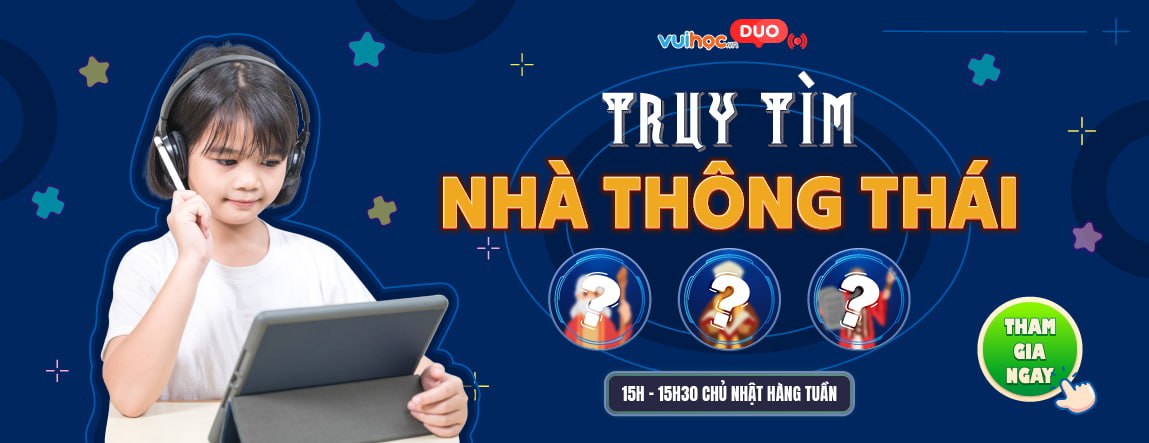Từ vựng Ielts Speaking chủ đề Getting lost: Mô tả một lần bạn đi lạc
Bạn đã bao giờ đi lạc và cảm thấy hoang mang không biết phải làm gì? Trong bài viết này, chúng ta sẽ khám phá từ vựng liên quan đến chủ đề “Getting lost” trong Ielts Speaking. Không chỉ giúp bạn chuẩn bị tốt hơn cho kỳ thi, các từ và cụm từ được giới thiệu sẽ là công cụ hữu ích để mô tả trải nghiệm của bản thân một cách sống động và thu hút hơn.

1. Ielts Speaking chủ đề Getting lost part 1
1.1 Have you ever got lost?
Sample 1: Yes, I have. I once got lost in a huge shopping mall because I couldn’t find the exit. I felt quite embarrassed and frustrated, especially because I kept walking in circles. Eventually, I had to ask a security guard for directions.
Sample 2: Definitely. I remember a time when I got lost in a foreign city while traveling alone. My phone’s GPS stopped working, so I had to rely on a paper map, but it was confusing. Even though I felt a bit anxious at first, it turned into an interesting experience because I stumbled upon a beautiful local café by accident.
Sample 3: Of course. When I was trekking in the mountains last year, I lost track of the path for a while. While it was a bit scary at first, it gave me a moment to pause and take in the breathtaking scenery. I was eventually able to retrace my steps safely, so it became a memorable adventure.
|
Từ vựng |
Phiên âm |
Dịch nghĩa |
|
Get lost |
/ɡet lɒst/ |
Bị lạc |
|
Shopping mall |
/ˈʃɒpɪŋ mɔːl/ |
Trung tâm thương mại |
|
Embarrassed |
/ɪmˈbærəst/ |
Xấu hổ |
|
Frustrated |
/frʌˈstreɪtɪd/ |
Bực bội, thất vọng |
|
Directions |
/dɪˈrekʃənz/ |
Chỉ đường |
|
Foreign city |
/ˈfɒrən ˈsɪti/ |
Thành phố nước ngoài |
|
GPS |
/ˌdʒiː.piːˈes/ |
Định vị GPS |
|
Paper map |
/ˈpeɪpə mæp/ |
Bản đồ giấy |
|
Confusing |
/kənˈfjuːzɪŋ/ |
Khó hiểu, rối rắm |
|
Anxious |
/ˈæŋkʃəs/ |
Lo lắng |
|
Stumble upon |
/ˈstʌm.bəl əˈpɒn/ |
Tình cờ phát hiện |
|
Trekking |
/ˈtrekɪŋ/ |
Đi bộ đường dài |
|
Lost track |
/lɒst træk/ |
Mất dấu |
|
Path |
/pɑːθ/ |
Con đường, lối đi |
|
Trace |
/treɪs/ |
Tìm lại |
|
Breathtaking |
/ˈbreθˌteɪkɪŋ/ |
Đẹp ngoạn mục |
|
Memorable |
/ˈmemərəbl/ |
Đáng nhớ |
1.2 How can you find the way when you are lost?
Sample 1: If I get lost, the first thing I would do is use my phone’s GPS or a navigation app like Google Maps. These tools are incredibly useful and usually provide clear routes to get back on track. They’re my go-to solution in most situations.
Sample 2: When I’m lost, I usually try to find local people nearby and ask for directions. They know the area well and can guide me better than anyone else. It also allows me to practice my communication skills, especially if I’m in a foreign country.
Sample 3: When technology isn’t an option, I rely on observing my surroundings. I look for landmarks, street signs, or any familiar places to guide me. Sometimes, being calm and retracing my steps is all it takes to figure out the way.
|
Từ vựng |
Phiên âm |
Dịch nghĩa |
|
Navigation app |
/ˌnævɪˈɡeɪʃən æp/ |
Ứng dụng điều hướng |
|
Tool |
/tuːl/ |
Công cụ |
|
Go-to solution |
/ɡəʊ tuː səˈluːʃən/ |
Giải pháp ưu tiên |
|
Local people |
/ˈləʊkl ˈpiːpl/ |
Người dân địa phương |
|
Communication skills |
/kəˌmjuːnɪˈkeɪʃn skɪlz/ |
Kỹ năng giao tiếp |
|
Surroundings |
/səˈraʊndɪŋz/ |
Môi trường xung quanh |
|
Landmark |
/ˈlændmɑːk/ |
Cột mốc, địa danh |
|
Street sign |
/ˈstriːt saɪn/ |
Biển báo đường phố |
|
Familiar |
/fəˈmɪljə(r)/ |
Quen thuộc |
|
Retrace |
/rɪˈtreɪs/ |
Đi lại con đường đã đi |
|
Get back on track |
/ɡet bæk ɒn træk/ |
Tìm lại đúng đường |
|
Clear route |
/klɪə ruːt/ |
Lộ trình rõ ràng |
|
Calm |
/kɑːm/ |
Bình tĩnh |
1.3 Can you read a map when you get lost?
Sample 1: Yes, I can read a map quite well, although it can be a bit tricky sometimes. I always pay attention to the compass directions, landmarks, and the scale on the map. Once I get familiar with these elements, it becomes easier to figure out where I am and where to go.
Sample 2: Honestly, I’m not very good at reading maps. I usually have trouble understanding the symbols or calculating distances. However, I try my best to connect the map with what I see around me, like buildings or streets, which helps me find my way eventually.
Sample 3: To be honest, I don’t rely much on paper maps anymore because GPS is so much more convenient. That said, I can still read a map if I have to. It just takes a little longer since I’m not accustomed to using maps very often these days.
|
Từ vựng |
Phiên âm |
Dịch nghĩa |
|
Compass directions |
/ˈkʌmpəs daɪˈrekʃənz/ |
Hướng la bàn |
|
Scale |
/skeɪl/ |
Tỷ lệ (trên bản đồ) |
|
Figure out |
/ˈfɪɡə aʊt/ |
Hiểu ra, tìm ra |
|
Symbols |
/ˈsɪmbəlz/ |
Ký hiệu |
|
Calculate distances |
/ˈkælkjʊleɪt ˈdɪstənsɪz/ |
Tính toán khoảng cách |
|
Buildings |
/ˈbɪldɪŋz/ |
Tòa nhà |
|
Streets |
/striːts/ |
Đường phố |
|
GPS (Global Positioning System) |
/ˌdʒiːpiːˈes/ |
Hệ thống định vị toàn cầu |
|
Convenient |
/kənˈviːniənt/ |
Tiện lợi |
|
Connect |
/kəˈnekt/ |
Kết nối |
|
Accustomed to |
/əˈkʌstəmd tuː/ |
Quen với điều gì đó |
|
Tricky |
/ˈtrɪki/ |
Khó khăn, phức tạp |
1.4 Have you ever helped someone who got lost?
Sample 1: Yes, I have. Once, I helped a foreign tourist who was looking for a famous museum in my city. They seemed very confused and couldn’t figure out the directions from their map. I explained the way to them and even walked with them part of the way to make sure they wouldn’t get lost again. It felt great to help someone in need.
Sample 2: Definitely. I remember assisting an elderly woman who was lost in a crowded park. She had trouble finding her family and was very worried. I calmed her down and called her family using the contact information she gave me. It was a meaningful experience because she was so relieved and grateful.
Sample 3: Yes, I’ve helped a few people before. For example, there was a man who got lost near the bus station and asked me for help. I wasn’t completely sure about the exact location he was looking for, so I used my phone to look it up for him. He thanked me, and I felt glad I could assist him in some way.
|
Từ vựng |
Phiên âm |
Dịch nghĩa |
|
Foreign tourist |
/ˈfɒrən ˈtʊərɪst/ |
Du khách nước ngoài |
|
Confused |
/kənˈfjuːzd/ |
Bối rối |
|
Elderly |
/ˈeldəli/ |
Lớn tuổi, cao tuổi |
|
Crowded |
/ˈkraʊdɪd/ |
Đông đúc |
|
Worried |
/ˈwʌrid/ |
Lo lắng |
|
Relieved |
/rɪˈliːvd/ |
Nhẹ nhõm |
|
Contact information |
/ˈkɒntækt ˌɪnfəˈmeɪʃn/ |
Thông tin liên lạc |
|
Grateful |
/ˈɡreɪtfl/ |
Biết ơn |
|
Bus station |
/bʌs ˈsteɪʃn/ |
Bến xe buýt |
|
Look something up |
/lʊk ˈsʌmθɪŋ ʌp/ |
Tra cứu |
|
Assist |
/əˈsɪst/ |
Hỗ trợ |
|
In need |
/ɪn niːd/ |
Đang cần sự giúp đỡ |
1.5 How does being lost make you feel?
Sample 1: Being lost usually makes me feel anxious and a bit panicked, especially if I’m in an unfamiliar place. I tend to worry about wasting time or not knowing how to get back to where I need to be. In those moments, it’s hard to stay calm, but I try to focus on finding a solution.
Sample 2: Honestly, I feel frustrated when I get lost, as it can make me feel like I’ve lost control of the situation. However, if I have a map or a phone with GPS, I can calm down and focus on solving the problem. It’s not pleasant, but it’s manageable.
Sample 3: Sometimes, being lost makes me feel a bit adventurous and curious, depending on the situation. For example, when I’ve been lost in a scenic area or a foreign city, I try to view it as an opportunity to explore. It can even lead to unexpected discoveries, which is pretty exciting.
|
Từ vựng |
Phiên âm |
Dịch nghĩa |
|
Panicked |
/ˈpænɪkt/ |
Hoảng sợ |
|
Unfamiliar |
/ˌʌnfəˈmɪliə(r)/ |
Không quen thuộc |
|
Waste time |
/weɪst taɪm/ |
Lãng phí thời gian |
|
Stay calm |
/steɪ kɑːm/ |
Giữ bình tĩnh |
|
Lose control |
/luːz kənˈtrəʊl/ |
Mất kiểm soát |
|
Manageable |
/ˈmænɪdʒəbl/ |
Có thể kiểm soát |
|
Adventurous |
/ədˈventʃərəs/ |
Thích phiêu lưu, mạo hiểm |
|
Curious |
/ˈkjʊəriəs/ |
Tò mò |
|
Scenic area |
/ˈsiːnɪk ˈeəriə/ |
Khu vực có cảnh đẹp |
|
Unexpected discovery |
/ˌʌnɪkˈspektɪd dɪˈskʌvəri/ |
Khám phá bất ngờ |
|
Focus on |
/ˈfəʊkəs ɒn/ |
Tập trung vào |
|
Opportunity |
/ˌɒpəˈtjuːnəti/ |
Cơ hội |
2. Ielts Speaking chủ đề Getting lost part 2
Với phần thi Ielts Speaking chủ đề Getting lost part 2, thí sinh có thể sẽ gặp cấu trúc câu hỏi như sau “Describe a time when you got lost.” Với phần thi này, bạn cần trình bày được các vấn đề sau với ban giám khảo:
-
When and where it happened
-
How you felt at that time
-
How you found your way
-
And explain the experience taught you something or not.
Để trả lời tốt câu hỏi này, đầu tiên bạn cần hiểu rõ yêu cầu của đề bài là kể về một lần bị lạc, bạn cần triển khai câu chuyện một cách logic, đáp ứng đầy đủ các ý yêu cầu nhưng vẫn đảm bảo tập trung thể hiện cảm xúc và trải nghiệm của bản thân trong câu chuyện đó. Để triển khai ý tưởng trả lời, bạn có thể thực hiện theo bố cục sau:
-
(1) Introduction: Nêu ngắn gọn bối cảnh (khi nào và ở đâu bạn bị lạc) để vào đề tự nhiên.
-
(2) Story Details: Cung cấp chi tiết về tình huống: bạn bị lạc như thế nào, lý do gì dẫn đến việc đó?
-
(3) Resolution: Làm thế nào bạn tìm được đường đi?
-
(4) Conclusion: Ý nghĩa hoặc bài học bạn rút ra, cảm giác của bạn sau sự việc.
Dưới đây là các câu trả lời mẫu và phân tích chi tiết câu trả lời:
Sample 1
I clearly remember a time when I got lost while traveling in Bangkok two years ago. It was my first trip abroad and I wasn’t very familiar with the city or its public transportation system. I was supposed to meet my friends at a shopping mall, but I accidentally got on the wrong bus and ended up in a completely unfamiliar neighborhood.
At first, I felt quite anxious and even a little panicked because I didn’t know anyone around, and my phone was running out of battery. The signs and directions were in Thai, which I couldn’t understand, and I felt helpless for a few minutes. However, I calmed myself down and decided to ask a local vendor for help. Luckily, they were kind and pointed me in the right direction.
Eventually, I managed to find a taxi to take me back to the shopping mall. The whole experience taught me how important it is to stay calm in stressful situations and always keep a charged phone when traveling. In the end, it was quite a memorable experience and actually helped me become more confident in exploring new places by myself.
Phân tích:
-
Mở đầu: Miêu tả bối cảnh cụ thể và lý do bị lạc.
-
Phát triển: Chú ý cảm giác hoảng sợ, cách giải quyết vấn đề.
-
Kết bài: Nhấn mạnh bài học và cảm nhận sau vụ việc.
Sample 2
There was a time I got lost during a hiking trip in the mountains last summer. It was supposed to be a guided group hike, but at one point, I wandered off to take some photos and lost track of the trail and my group.
At first, I didn’t realize I was lost, but after walking for around 15 minutes without seeing anyone, I started to feel nervous. The woods felt so quiet and unfamiliar, and I began to worry about how I would find my way back. I felt a mix of frustration and fear, but I forced myself to stay calm. I remembered some basic survival tips, like paying attention to landmarks and retracing my steps.
Luckily, after about 30 minutes of walking back the way I came, I heard voices and rejoined my group. That experience taught me the importance of staying close to others during group activities and being extra mindful of my surroundings. Now, I always make sure to stick to the group during trips like that.
Phân tích:
-
Mở đầu: Ngắn gọn vào câu chuyện bị lạc khi đi leo núi.
-
Phát triển: Tập trung mô tả sự lo lắng và cách xử lý thông minh.
-
Kết bài: Bài học và thay đổi sau sự việc.
Từ vựng Ielts Speaking chủ đề Getting lost
|
Từ vựng |
Phiên âm |
Dịch nghĩa |
|
Public transportation |
/ˈpʌblɪk ˌtrænspɔːˈteɪʃən/ |
Phương tiện giao thông công cộng |
|
Direction |
/dəˈrekʃn/ |
Hướng đi |
|
Landmarks |
/ˈlændmɑːks/ |
Điểm mốc |
|
Wander off |
/ˈwɒndər ɒf/ |
Đi lung tung |
|
Retrace my steps |
/rɪˈtreɪs maɪ stɛps/ |
Đi lại con đường cũ |
|
Memorable experience |
/ˈmemərəbl ɪkˈspɪəriəns/ |
Kỷ niệm đáng nhớ |
|
Confidence |
/ˈkɒnfɪdəns/ |
Sự tự tin |
3. Ielts Speaking chủ đề Getting lost part 3
Trong Ielts Speaking Part 3, bạn cần trình bày câu trả lời một cách chi tiết, mạch lạc và đưa ra các lý do hoặc dẫn chứng cụ thể để thuyết phục giám khảo. Chủ đề “Getting lost” (bị lạc đường) có thể mở rộng ra các khía cạnh liên quan như công nghệ, phương thức di chuyển, hoặc bài học từ việc bị lạc. Dưới đây là hướng dẫn cách trả lời chi tiết cho Part 3 về chủ đề này:
Question 1: How can people avoid getting lost in the modern world?
I think getting lost has become less common in today's world because of advancements in technology. People can now rely on GPS devices or smartphone applications like Google Maps. The ease of access to such tools enables them to navigate accurately, even in unfamiliar places. For example, when traveling abroad, tourists can input the destination into the app and follow step-by-step directions. However, I believe it's still important to develop basic navigation skills, such as reading maps or observing landmarks, as technology isn't always reliable in remote areas or where the internet isn't available.
Question 2: What lessons can people learn from getting lost?
Getting lost can be a valuable experience because it helps people develop problem-solving skills and resilience. When someone is lost, they are forced to stay calm, analyze the situation, and come up with a way to find their path. For instance, during one of my trips, I got lost in a forest, and I learned to rely on natural signs like the position of the sun and visible trails. Moreover, getting lost teaches people to be more prepared, such as carrying maps, food, or other equipment. It also reminds us to stay mindful and aware of our surroundings, which is a skill often overlooked in our fast-paced world.
Question 3: Is it easier to get lost now than in the past?
In my opinion, it’s much harder to get lost nowadays than it was in the past because of technological advancements. In the past, people had to rely on traditional paper maps, which were sometimes inaccurate or hard to read. They also depended on asking for directions from locals, which could be challenging if there was a language barrier. However, nowadays, digital tools like GPS, voice navigation, and real-time traffic updates have made traveling much easier and more reliable. That being said, over-reliance on technology could make people less skilled at navigating without these tools, which might be a drawback in emergencies.
Như vậy, việc sử dụng từ vựng phong phú và chính xác khi mô tả trải nghiệm đi lạc có thể giúp bạn gây ấn tượng mạnh hơn trong phần thi Ielts Speaking. Hãy thường xuyên thực hành với các cụm từ đã được đề cập và tìm kiếm cơ hội để áp dụng chúng trong giao tiếp hàng ngày. Điều này không chỉ giúp bạn cải thiện điểm số mà còn làm cho quá trình học tiếng Anh trở nên thú vị hơn. Bắt đầu ngay hôm nay để nâng cao kỹ năng nói của bạn và chuẩn bị tốt cho kỳ thi Ielts sắp tới!













